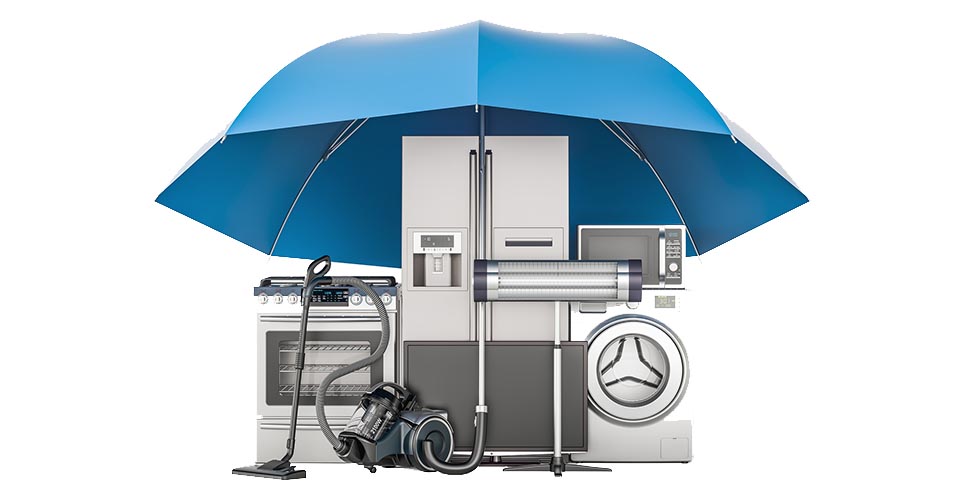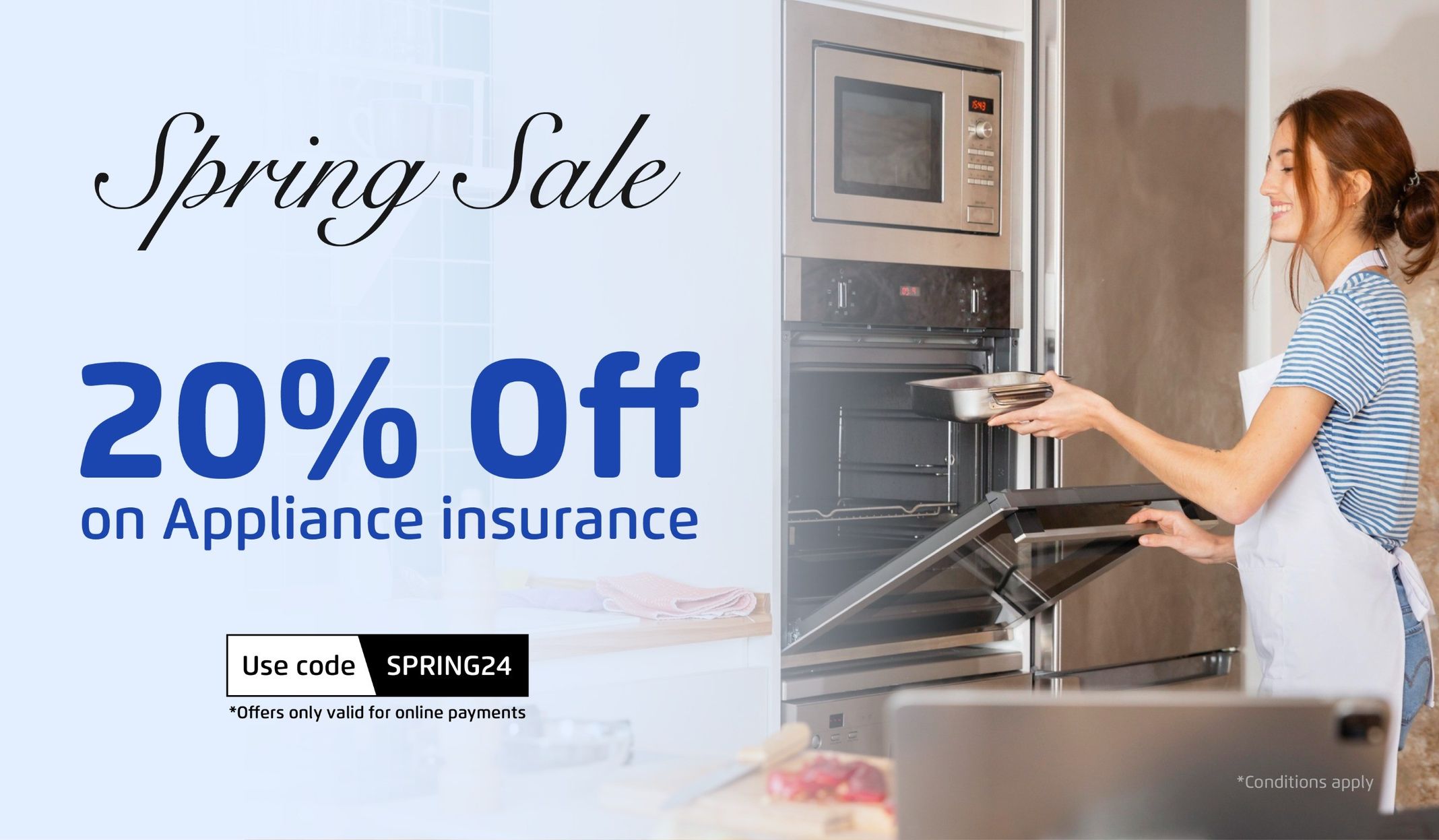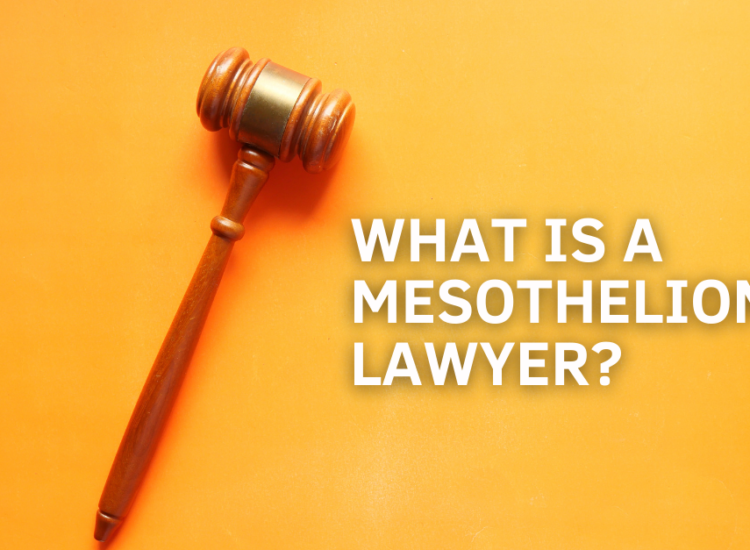Managing rental properties is definitely not a walk in the park. You’re constantly balancing tenant satisfaction with the need to protect your investment. That’s precisely where household appliance insurance steps in. Consider it your safety net—it covers those unexpected repair costs and ensures your property’s appliances remain in good working order for the long term.
Toc
So, why is this important? It’s straightforward. Appliances fail, and when they do, the responsibility to fix them falls on you. Insurance can save you valuable time, money, and a significant amount of stress. This guide breaks down exactly why appliance insurance is a game-changer for property managers, the different types of policies available, and how to choose the one that’s right for you. Additionally, we’ll include some real-world examples and explore emerging trends that could reshape the future of this area. Does that sound good? Let’s get started.
Overview of Appliance Insurance

Appliance insurance, also known as home appliance warranty or household appliance insurance, is a type of coverage that protects the appliances in your rental property from wear and tear. It typically covers repairs or replacements for major household appliances such as refrigerators, ovens, dishwashers, washing machines, and dryers. In essence, it provides financial security against unexpected breakdowns or malfunctions, giving you peace of mind as a property manager.
Importance of Appliance Insurance for Property Managers
As a property manager, your primary goal is to maintain and increase the value of your properties while keeping your tenants satisfied. That’s where appliance insurance comes in – it helps you achieve both objectives simultaneously. Here are some key benefits of having appliance insurance for your rental properties:
- Cost Savings: Appliances are prone to wear and tear, and the costs of repairing or replacing them can quickly add up. By having appliance insurance, you can save on these expenses and avoid any financial strain.
- Tenant Satisfaction: In today’s rental market, tenants expect modern appliances that function properly. Having appliance insurance ensures that your appliances are well-maintained and in good working condition, which can lead to increased tenant satisfaction and retention.
- Time-Saving: As a property manager, your time is valuable. Dealing with unexpected appliance breakdowns can be time-consuming and disruptive to your schedule. With appliance insurance, you can save time by having a dedicated team of professionals handle the repairs or replacements on your behalf.
Types of Appliance Insurance Policies
Property managers can choose from a variety of appliance insurance policies, each with its own set of coverage and benefits. Some of the most common types include:
- Manufacturer Warranty: Typically included in the purchase price, manufacturer warranties cover defects in materials or workmanship for a specific period.
- Home Warranty: A comprehensive policy that covers multiple appliances and systems in a home, including plumbing, electrical, and heating/cooling.
- Extended Warranty: An add-on to the manufacturer warranty that extends coverage for a specified period or provides extra features such as no deductibles or unlimited repairs.
- Tenant Insurance: While not specific to appliances, tenant insurance can offer protection against accidental damage or loss of personal property.
Exploring Appliance Insurance Policies

Navigating the realm of appliance insurance policies requires a keen understanding of what’s on offer. Broadly, these can include:
- Individual Appliance Insurance: Coverage tailored to specific appliances, suitable for high-value items.
- Bundle Policies: Combined coverage for multiple appliances, offering broader protection.
- Comprehensive Home Systems Insurance: Coverage that extends beyond appliances to include plumbing, electrical systems, and more.
Each policy type has its merits, and the choice largely depends on the specifics of your property portfolio and the needs of your tenants.
1. https://infocantho.net/mmoga-the-ultimate-guide-for-first-time-house-buyers
3. https://infocantho.net/mmoga-the-ultimate-guide-to-selling-your-house-for-cash
Selecting the Right Appliance Insurance Policy
Choosing the appropriate appliance insurance involves several considerations:
- Assess Your Needs: Evaluate the age, condition, and replacement cost of the appliances in your properties. This will help determine the level of coverage required.
- Understand Policy Details: Pay close attention to what’s covered under each policy. Look for exclusions, deductibles, and claim limits.
- Compare Costs vs. Benefits: Analyze the cost of the policy against the potential savings on repairs and replacements.
- Check Provider Reputation: Opt for insurers with a solid track record of customer service and timely claim resolution. Online reviews and ratings can be helpful in this regard.
- Read the Fine Print: Before signing any policy, be sure to read and understand all terms and conditions. If there are any unclear or conflicting clauses, seek clarification from the insurer.
Insurance for Smart Appliances
In today’s market, smart appliances — refrigerators, ovens, washing machines, and more that are interconnected and internet-enabled — are increasingly popular in rental properties for their convenience and sophisticated features. These appliances, however, come with a higher price tag and potentially more complex repair needs than their traditional counterparts. Considering the investment in smart appliance technology, insurance coverage specifically designed for these devices is crucial.
Smart appliance insurance goes beyond standard appliance warranties by covering the unique aspects of internet-connected devices. This includes software malfunctions, connectivity issues, and even cybersecurity threats that could compromise the functionality of the appliance. Property managers should seek policies that offer comprehensive coverage for both physical repairs and software updates, ensuring that the high-tech convenience promised by these appliances remains a benefit rather than a burden.
Choosing the right smart appliance insurance requires understanding the technology’s specific risks and finding a policy that addresses these concerns while still offering the benefits of traditional appliance coverage. By doing so, property managers can protect their investment in smart home technology and offer cutting-edge amenities to their tenants confidently.
Tips for Choosing the Right Appliance Insurance Coverage

Conducting a Cost-Benefit Analysis for Appliance Insurance
When considering appliance insurance for rental properties, performing a cost-benefit analysis is essential to ensure that the investment makes financial sense. This process entails weighing the annual cost of the insurance against the potential costs of appliance repair or replacement without coverage. Factors to consider include the age and condition of appliances, as appliances that are near the end of their lifespan are more likely to fail and thus might justify the cost of insurance more readily than newer appliances still under manufacturer warranty. Additionally, the frequency of use and the cost of individual repairs or replacements should be taken into account, as high-use environments may see a quicker return on investment for insurance coverage.
A thorough cost-benefit analysis also evaluates the intangible benefits of having insurance, such as peace of mind for both property managers and tenants, and the potential for quicker, more efficient service when repairs are needed, minimizing downtime and inconvenience. However, it’s crucial to balance these benefits against the likelihood of needing repairs and the total cost of premiums over time.
Ultimately, the decision to purchase appliance insurance should be based on a detailed understanding of the financial implications, considering both the immediate and long-term costs versus the benefits. By carefully analyzing these factors, property managers can make an informed decision that protects their property investment and aligns with their financial planning.
Choosing the right applince insurance coverage
Selecting the right appliance insurance coverage can be overwhelming with so many options available. Here are some essential tips to help you make an informed decision:
- Assess Your Needs: Evaluate the appliances in your properties, their age, and potential risks to determine what type of coverage is necessary.
- Read the Fine Print: Carefully read the terms and conditions of the policy to understand what is covered, excluded, and any deductibles or limits.
- Compare Policies: Don’t settle on the first policy you come across. Instead, compare different providers to find one that offers the best coverage for your needs and budget.
- Consider Additional Features: Look for policies with additional features like emergency services, 24/7 customer support, and flexible payment options. These can make a significant difference in the long run.
- Seek Recommendations: Ask for recommendations from other property managers or landlords who have experience with appliance insurance. Their insights and experiences can help guide your decision.
Real-life Benefits for Property Managers and Tenants

3. https://infocantho.net/mmoga-the-ultimate-guide-to-selling-your-house-for-cash
4. https://infocantho.net/mmoga-the-ultimate-guide-for-first-time-house-buyers
Consider the case of a large apartment complex where the air conditioning units failed during a heatwave. Thanks to comprehensive appliance insurance, the property manager was able to quickly coordinate repairs without financial strain, keeping tenants comfortable and satisfied. This scenario underscores the tangible benefits of ensuring your appliances are backed by a robust insurance policy.
To understand the importance of appliance insurance for property managers better, let’s explore a few real-life examples:
- Example 1: A refrigerator in one of your rental properties suddenly stops working. Without coverage, you would have to pay out of pocket for repairs or replacement, which can be costly. With appliance insurance, the expenses are significantly reduced, and the issue can be resolved quickly, keeping your tenant happy.
- Example 2: A washing machine in another property starts leaking and causing water damage to the floors. Without coverage, you would have to pay for repairs or replacements as well as any damages caused by the leak. Appliance insurance can cover both the appliance and any resulting damages, saving you time and money.
Examples of Appliance Insurance Claims
To further illustrate the value of appliance insurance, here are additional real-life situations where having the right coverage made a significant difference for property managers:
- Example 3: During an unexpected power surge, several smart appliances in a high-end rental unit were damaged, affecting their functionality and smart features. The property manager filed a claim under the appliance insurance policy, which covered the cost of repairs and necessary software updates to restore the appliances to their fully functional state, avoiding hefty replacement costs and tenant dissatisfaction.
- Example 4: A tenant reported that the oven in their unit suddenly stopped heating, making it unusable. The appliance was no longer under the manufacturer’s warranty, and the cost of repair was estimated to be nearly as high as purchasing a new model. The property manager utilized the appliance insurance, which covered the replacement of the faulty oven with a new, equivalent model, ensuring the tenant could continue to enjoy their rental without a lengthy disruption.
These examples underscore the practical benefits of appliance insurance in managing and mitigating the financial risks associated with appliance failures. By covering repair or replacement costs, appliance insurance helps maintain property value, ensures tenant satisfaction, and provides peace of mind for property managers.
Testimonials from Satisfied Property Managers
Hearing from those who’ve directly experienced the advantages of appliance insurance offers invaluable insights. Below are testimonials from property managers who have seen firsthand the benefits of having the right coverage:
- “After a major kitchen appliance failed in one of our rented units, the quick response and coverage from our chosen appliance insurance were nothing short of a lifesaver. Not only did it save us from a significant financial hit, but it also helped us maintain a strong relationship with our tenant.” – Maria, Property Manager
- “I was initially skeptical about the need for appliance insurance until a series of appliance failures hit multiple properties within a short span. The ease with which the claims were handled and the speed of service was a game changer. It turned what could have been a financial nightmare into manageable incidents.” – John, Portfolio Manager
- “Our tenants expect quick solutions to maintenance issues, and appliance insurance has enabled us to live up to those expectations. Knowing that we’re covered in case of any appliance malfunctions makes budget planning so much easier and has undeniably enhanced our tenants’ satisfaction.” – Hannah, Residential Manager
These testimonials underscore the real-world value and peace of mind that appliance insurance can provide to property managers, illustrating the importance of choosing the right coverage to protect against unexpected financial burdens and to keep tenants happy.
Conclusion

For property managers, the decision to invest in household appliance insurance should be a calculated one, rooted in an understanding of the benefits and tailored to meet the specific needs of their property portfolio. With the right policy, you can safeguard your appliances, mitigate unexpected costs, and ensure a higher level of tenant satisfaction. By integrating practical tips for policy selection and staying informed about future trends, you’ll be well-equipped to make informed decisions that bolster your property management success.












